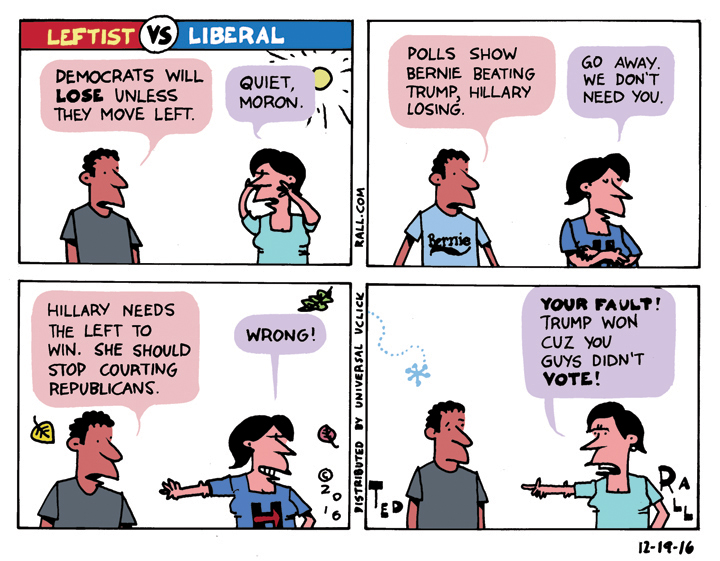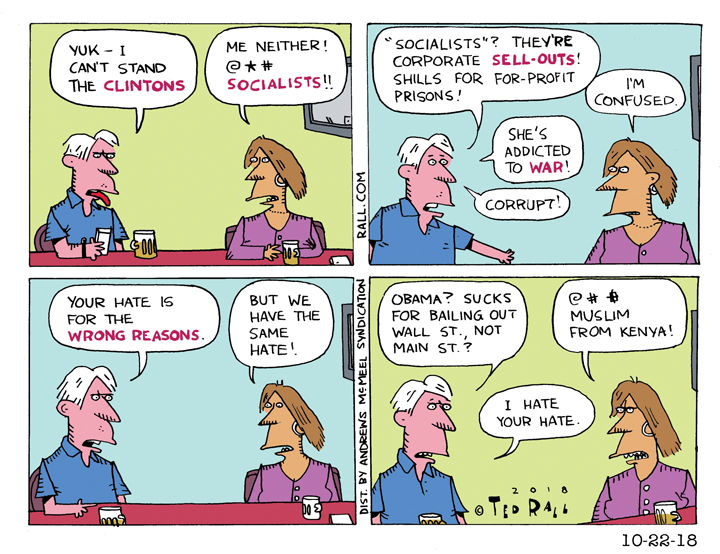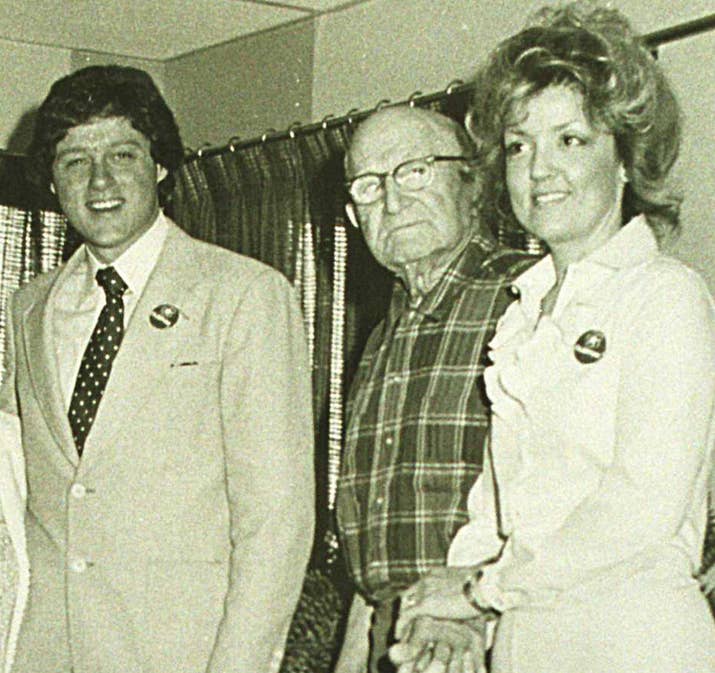
America has lots of leftists. Forty percent of voters say that they would prefer to live in a socialist country than a capitalist one.
Yet America has zero leftists running for president.
Think about that the next time someone tells you that we live in the greatest country on earth, or for that matter, that this is a democracy. If the United States was democratic or, more precisely, had a truly representative form of government, 40% of the electorate would have someone to vote for.
According to the mainstream media, the Democratic Party is left. And the current crop of contenders for president has never been more left.
Beto O’Rourke, Fox News says, had a “far-left presidential platform.” He likes pro-corporate jobs-exporting free trade agreements, backs a blank check to Israel’s right-wing government and wants to send teenagers to prison for 15 years for sexting. If that’s far left, I have a Palace of the Soviets I’d love to sell you.
“If Democrats select a nominee who is unelectable because of a far-left or socialist agenda, then their beds will be made,” frets The Hill.
“As a left-wing San Francisco liberal I can say to these people [progressive candidates]: What are you thinking?” asks Nancy Pelosi. How can you be “a left-wing San Francisco liberal” and vote to invade Afghanistan?
It’s BS but over time, even the most strong-minded among us succumb to the never-ending tsunami of propaganda. Like Winston Smith in “1984,” we doubt ourselves and believe the lies. No wonder 47% of Americans say that the Democratic Party has moved too far left.
Now more than ever, we need a reality check. Electoral politics has no space whatsoever for the real, actual left: Communism, socialism, left anarchism, left libertarianism, etc. Corporate journalistic outlets employ no actual leftists. There is no organized left in the United States.
Under a socialist economy, workers own the means of production. This is important because it means they are no longer exploited. As Karl Marx wrote: “From each according to his ability, to each according to his contribution.” So those who aren’t able to work due to physical or mental infirmities, for example, have equal access to the good things in life.
Though the “green new deal” espoused by Bernie Sanders would theoretically employ millions of Americans as government workers, those employees wouldn’t own their workplaces. Similarly, “Medicare for all” would abolish private insurance but it wouldn’t put healthcare workers on the government payroll as is the case in other countries. Those two ideas, if implemented, would resemble New Deal-era programs like the WPA and CCC. Contrary to the dogma of the conservatives who currently control the national political dialogue, if it’s socialism for the government to hire somebody, then any place with a single cop is a socialist country.
None of the 2020 candidates for president in the Democratic primaries favor the nationalization of currently private businesses that would be required to achieve a socialistic economy. You can’t have a far left without nationalization or socialism.
None of the Democratic candidates oppose war in the manner of pacifists, much less adapt to the analysis of the left that there should be no war but class war. “The main enemy is at home,” noted the German Spartacist Karl Liebknecht, referring to the ruling classes. “We differ from the pacifists,” Lenin wrote during World War I, “in that we understand the inevitable connection between wars and the class struggle within a country; we understand that wars cannot be abolished unless classes are abolished and socialism is created; we also differ in that we regard civil wars, i.e. wars waged by an oppressed class against the oppressor class, by slaves against slaveholders, by serfs against landowners and by wage workers against the bourgeoisie, as fully legitimate, progressive and necessary.”
A left—certainly a “far left”—candidate for president of United States would categorically oppose all wars of aggression, imperialism, and neocolonialism. Contrast that leftist ideal to the most anti-militaristic Democrats in the current race.
Tulsi Gabbard, arguably the most stridently antiwar candidate in the cycle, nevertheless touts her military service even as she declaims “regime change wars.” She praised President Trump’s order to assassinate ISIS leader Abu Bakr al-Baghdadi. She took $100,000 in campaign contributions from arms dealers. “When it comes to the war against terrorists, I’m a hawk,” she said. “When it comes to counterproductive wars of regime change, I’m a dove.”
Bernie Sanders, also on the left flank of the Democrats, told me that he would continue the drone assassinations that have killed thousands of innocent people. He voted for the authorization to use military force after 9/11, and 20 years before, to allow Bill Clinton to bomb Serbia.
We will never get the chance to live in that better world embodied by the ideal of socialism and communism unless we understand that we have an awful lot of work to do before we can get there. Allowing commentators and the Democrats themselves to describe anything that’s going on in mainstream electoral politics as “far left” is self-destructive and an endorsement of the worst kind of lie, the fiction that the most important ideals are represented by anyone in American political life.
(Ted Rall (Twitter: @tedrall), the political cartoonist, columnist and graphic novelist, is the author of “Francis: The People’s Pope.” You can support Ted’s hard-hitting political cartoons and columns and see his work first by sponsoring his work on Patreon.)







